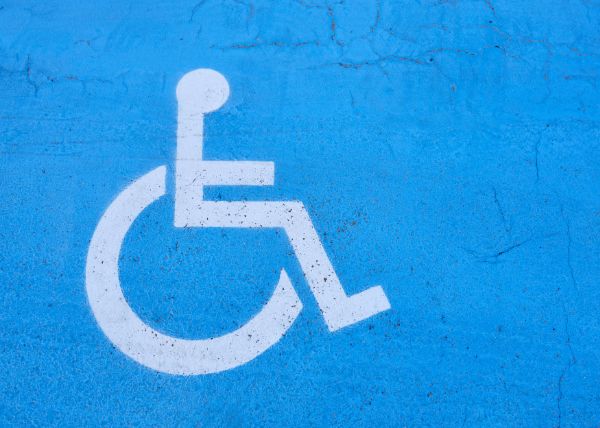At Katz Leidman Freund Herman, we are dedicated to helping individuals with disabilities navigate the system and obtain the benefits they deserve. From chronic illnesses to mental health disorders, we have the expertise to guide you through the process and advocate on your behalf. Let us help you understand what conditions qualify for disability and provide the support you need to secure the benefits you deserve.
How Qualified Disabilities Are Decided
According to the Social Security Administration (SSA), there are specific criteria that must be met in order for a condition to qualify as a disability. These criteria include:
1. The condition must be severe enough to significantly limit your ability to perform basic work activities, such as walking, standing, lifting, and carrying.
2. The condition must be expected to last for at least one year or result in death.
Determining whether a condition meets the SSA’s criteria for disability involves a thorough evaluation of the individual’s medical records, test results, and statements from healthcare providers. The severity of the condition and its impact on daily functioning are key factors in the decision-making process.
Additionally, the SSA considers how the condition affects an individual’s ability to work. If a disability prevents someone from performing substantial gainful activity, they may be eligible for disability benefits.
What Conditions Qualify for Disability?
Workers’ compensation benefits are designed to provide financial support to employees who suffer work-related injuries or illnesses that result in disability or impairment. To qualify for disability benefits under workers’ compensation in New York, certain criteria must be met, including the following:
Work-Related Injury or Illness
To be eligible for disability benefits, the injury or illness must be directly related to the employee’s job duties or workplace environment. This can include injuries sustained in workplace accidents, occupational diseases caused by exposure to hazardous substances, or repetitive stress injuries resulting from job-related activities.
Medical Evidence of Disability
Claimants must provide medical evidence to support their disability claim, including documentation from qualified healthcare providers such as physicians, specialists, or medical examiners. Medical records, diagnostic tests, treatment notes, and other medical documentation may be used to establish the nature and extent of the disability.
Disability Classification
Disabilities are classified into different categories based on their severity and impact on the employee’s ability to work. In New York, disabilities are classified as temporary total disability (TTD), temporary partial disability (TPD), permanent total disability (PTD), or permanent partial disability (PPD), each with specific eligibility criteria and benefit entitlements.
Impairment Rating
In cases of permanent disability, an impairment rating may be assigned to assess the severity of the disability and its impact on the employee’s earning capacity. The impairment rating is used to determine the extent of disability benefits payable to the employee based on statutory guidelines and schedules.
Vocational Limitations
Disability benefits may also take into account vocational limitations or restrictions that affect the employee’s ability to perform job-related tasks or return to work in their previous capacity. Vocational assessments may be conducted to evaluate the employee’s work-related skills, education, training, and job prospects.
Legal Representation
Navigating the workers’ compensation system and qualifying for disability benefits can be complex and challenging, especially for individuals with disabilities. Seeking legal representation from an experienced workers’ compensation attorney can help ensure that your rights are protected, your claim is properly documented, and you receive the benefits you deserve.
While eligibility for disability benefits depends on individual circumstances, certain medical conditions commonly qualify for workers’ compensation disability benefits, including:
- Back injuries
- Neck injuries
- Spinal cord injuries
- Traumatic brain injuries (TBI)
- Amputations
- Fractures and orthopedic injuries
- Repetitive stress injuries (RSI)
- Occupational diseases (e.g., mesothelioma, asthma, hearing loss)
If you have suffered a work-related injury or illness that has resulted in disability, it’s essential to consult with a knowledgeable workers’ compensation attorney to understand your rights and options for pursuing disability benefits. At Katz Leidman Freund & Herman, our experienced attorneys are dedicated to helping injured workers navigate the workers’ compensation system and obtain the benefits they deserve.
Workers’ Compensation vs. Disability

Navigating the complexities of workers’ compensation and disability benefits can be confusing, especially for individuals who have suffered work-related injuries or illnesses. Understanding the differences between workers’ compensation and disability benefits is crucial for injured workers seeking financial support and medical care. Here’s a breakdown of the key distinctions between workers’ compensation and disability:
1. Workers’ Compensation:
Workers’ compensation benefits are provided to employees who suffer work-related injuries or illnesses regardless of fault. These benefits typically cover medical expenses, lost wages, and rehabilitation costs resulting from the injury or illness. Workers’ compensation benefits are administered by state governments and are intended to provide prompt financial assistance and medical care to injured workers.
Key Features of Workers’ Compensation:
- Coverage for work-related injuries or illnesses
- No requirement to prove fault or negligence
- Benefits include medical treatment, wage replacement, and vocational rehabilitation
- Benefits are typically paid by the employer’s workers’ compensation insurance carrier
- Eligibility criteria vary by state, but generally, employees must report the injury promptly and seek medical treatment from authorized healthcare providers
2. Disability Benefits:
Disability benefits, on the other hand, are designed to provide financial support to individuals who are unable to work due to a disabling condition, whether it is work-related or not. Disability benefits may be provided through private disability insurance policies, government programs such as Social Security Disability Insurance (SSDI), or state disability programs. These benefits are intended to replace a portion of lost income for individuals who are unable to work due to a disability.
Key Features of Disability Benefits:
- Coverage for individuals who are unable to work due to a disabling condition
- Requirements vary by program or insurance policy, but generally, individuals must meet medical and vocational criteria to qualify for benefits
- Benefits may include cash payments, medical coverage, and vocational rehabilitation services
- Disability benefits may be temporary or permanent, depending on the severity and duration of the disability
- Eligibility criteria and benefit amounts vary depending on the program or insurance policy
Understanding the distinctions between workers’ compensation and disability benefits is essential for injured workers seeking financial support and medical care. If you have suffered a work-related injury or illness and have questions about your eligibility for benefits, it’s essential to consult with an experienced workers’ compensation attorney who can guide you through the process and advocate for your rights.
Applying for Disability Benefits? We Can Help.
If you are dealing with a disabling condition that is preventing you from working, it may be time to explore your options for disability benefits. Applying for disability benefits can be a complex and overwhelming process, but you do not have to navigate it alone.
At our firm, we are dedicated to helping individuals like you understand their rights and navigate the disability benefits application process. Our experienced attorneys can assist you in gathering the necessary medical evidence, completing the required paperwork, and representing your interests throughout the appeals process if necessary.
Contact us today to schedule a consultation and learn more about how we can help you secure the disability benefits you deserve. Remember, you do not have to face this challenging situation on your own – we are here to support you every step of the way. Let us help you get the financial support and medical care you need to focus on your health and well-being.

